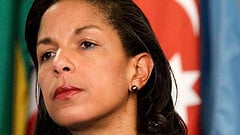With the increasing possibility of no vote being held on a Syria attack in the House and Senate, President Obama’s uphill battle to win over lawmakers and the US public — and his probable defeat in Congress — may have come to an end.
Those opposed to the administration’s plans for an attack on Syria may well have reason to cheer this dramatic turn of events, particularly as the massive loss of life from both the “unbelievably small” Tomahawk strike and the subsequent slaughter of more civilians by the insurgents who would benefit from the strikes will have been — for now — avoided.
However welcome is this shift in momentum toward peace, there is also disappointment that, as the corporate media struggles to put a positive spin on the incredibly reckless actions of the US regime, the US administration will not have to answer the most serious questions raised by its assertions on Syria.
As fearless investigative reporter Gareth Porter uncovers, the Administration’s case for war on Syria was a fraudulent cook-up crafted in the White House and by NSC staffers and dishonestly wrapped in US Intelligence Community labels to give it undeserved legitimacy.
The process by which a legitimate Intelligence Community product is produced was tossed aside, but since no one would believe the fantasies of the Susan Rices and Ben Rhodeses, and Tony Blinkens, they needed to put a legitimate Intelligence Community face on a cherry-picked piece of war propaganda.
As Porter points out, not even Director of National Intelligence James Clapper would put his name on the report, because the White House retained control over the final document though it was sold as an Intelligence Community product. So instead of the summary being released by the Office of the Director of National Intelligence, it was released by the White House Office of the Press Secretary.
That in itself speaks volumes. It was not referred to as an Intelligence Community assessment — which would indicate a thorough Community-wide report incorporating dissenting voices and alternative views — but rather a “US government assessment.” Former senior intelligence officers Porter interviewed had never heard of that term. It was no doubt invented out of thin air.
It is clear that the Intelligence Community does not agree with what was passed off as an IC product, so they were just written out of the picture by Obama and his White House/NSC staffers, with no doubt help from political appointees in the State Department.
Gareth Porter concludes:
Opponents of the proposed US strike against Syria could argue that the Obama administration’s presentation of the intelligence supporting war is far more politicized than the flawed 2002 Iraq WMD estimate that the George W. Bush administration cited as part of the justification for the invasion of Iraq.
It is dangerous that the Administration will not be brought to task for turning the US Intelligence Community — where scores of apolitical professionals endeavor to accurately assess complex information about the world — into his own private humanitarian intervention cheering committee. The zealots in his administration will not receive their comeuppance — at least in the court of public opinion — so they will survive to fight another day.
Flickr/ seatonsnet

